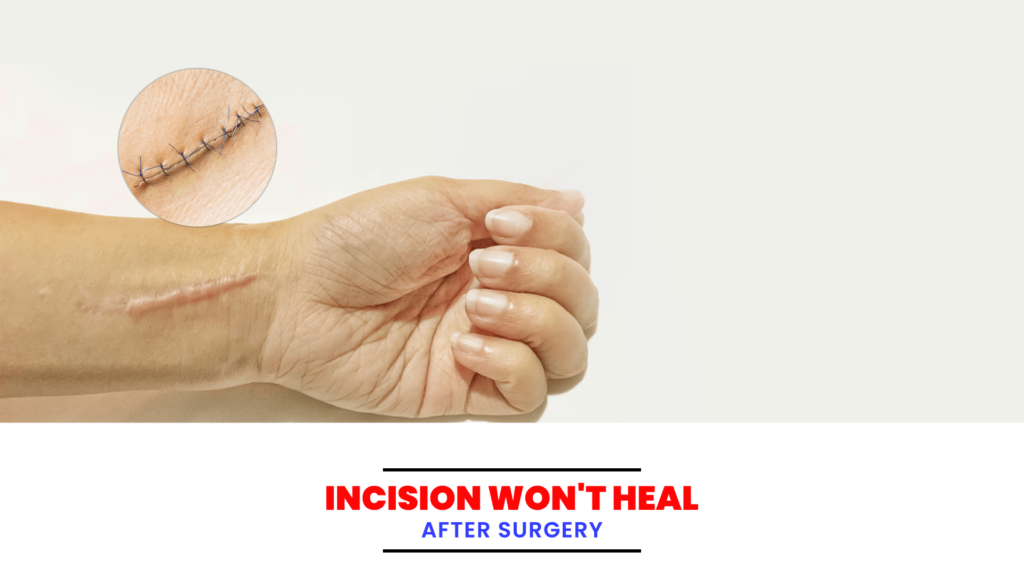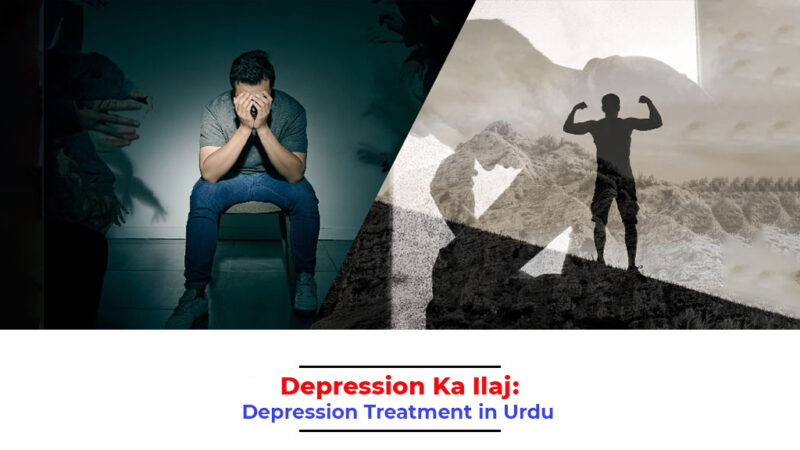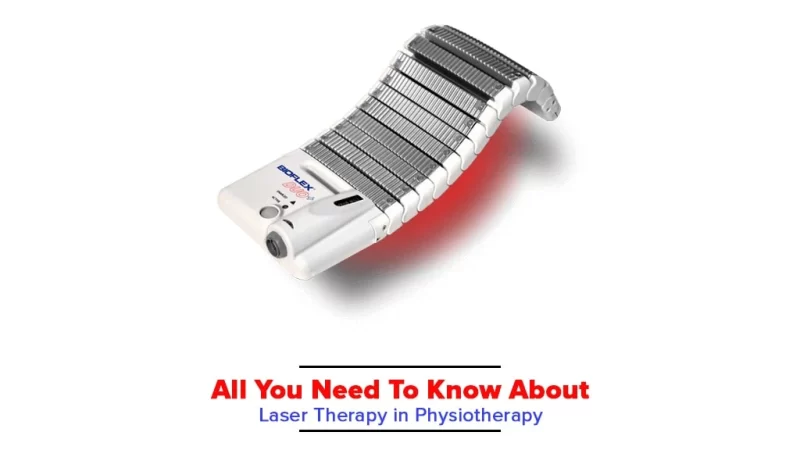Incision Won’t Heal After Surgery—What To Do?

If your incision won’t heal after surgery, then read further to know some proven ways that will heal your infected wound quickly.
What are non-healing surgical wounds?
Non-healing surgical wounds get infected and don’t heal properly. This results in sores, aches, and problems in carrying out daily life activities. It becomes very problematic and one needs to get rid of that wound no matter what.
Let’s look at why surgical wounds won’t heal and what they look like. This way, you’d better be able to get the right treatment.
How long does it take for a surgical incision to heal?
Surgical incisions that are clean (non-infected) usually heal within weeks. A few surgical incisions (for example, c-section wounds) might take 2 to 3 months to heal. It’s alright for a wound to take its time and heal properly.
But in rare cases, wounds caused by surgical incisions don’t heal properly due to an infection. This becomes serious at times when the wound aches and is filled with puss.
Causes
Non-healing surgical wounds can occur due to lots of causes. There are many risk factors involved that must be considered during the incision healing process. But if these risk factors are ignored then you might end up drastically slowing down the healing process.
Here are some reasons why your incision won’t heal after surgery, or heal slowly.
- Infection such as bacteria on the skin surrounding the incision
- Immunocompromised state such as diabetes
- The overall weak immune system
- Emergency surgeries
- Surgeries that last for more than 2 hours
- Old age
- Obesity
- Smoking
- Poor eating habits
If these causes are watched right after the surgery then the wound can heal properly.
Symptoms
If you suspect that your incision won’t heal after surgery in a normal way then watch for the following symptoms:
- Fever
- Swelling
- Redness
- Increased itching
- Puss
- Increased dryness
- Foul smell
The symptoms also depend on the area where the incision was made and the type of surgical wound.
How to heal a wound that won’t close
Below are some ways to manage non-healing surgical wounds. You must follow to make sure your wound heals properly.
Home care
First and foremost, you have to take care of your wound at home. This isn’t difficult if you have a supporting system as well. Your wound should be washed with salt water at least 4 to 5 times a day. If the wound is bandaged then the bandage should be changed to a new one after every 12 hours or as required. If there’s pus in the wound then it should be cleaned properly.
Medical treatment
You should seek advice from your doctor immediately. Your doctor will decide the new line of treatment depending upon the cause of your non-healing wound after surgery.
The doctor might prescribe medicines to prevent infection and relieve pain. They can also perform debridement—a procedure that removes dead skin from the wound.
Other treatment options include:
- Vacuum-assisted closure in which the wound is closed by creating a vacuum
- Hyperbaric oxygen therapy in which the wound is given oxygen so that it can heal properly
- Skin or tissue grafting
Physical therapy And Counseling
Physical therapy and counseling can help you cope with the pain and stress caused by the non-healing wound. The wound can make you feel stressed and vulnerable. But physical therapy with counseling can really make you feel better. Physical therapy also helps regulate the blood and the wound will receive more oxygen. This can assist in healing as well.
Laser therapy
Another modern, highly effective, and non-invasive incision treatment is through low-level laser therapy (LLLT). Laser therapy is done by expert doctors in their clinic with the help of a hand-held device. The laser beam penetrates the wound and stimulates the natural healing mechanism, allowing for surgical wound healing from the inside out. So, you don’t need any medicine or other treatment alongside.
The doctor will ask you for follow-up sessions as well so that the wound heals properly.
Click here to know more about this treatment and how you can benefit from it.
Conclusion
With proper care and treatment, it takes a few weeks for a surgical wound to heal. But if your wound after surgery gets infected or you have a weak immune system then surgical wounds might not heal properly. So, if your incision won’t heal after surgery then read above to know some incision treatments that can help the wound heal properly, even if it was infected.


